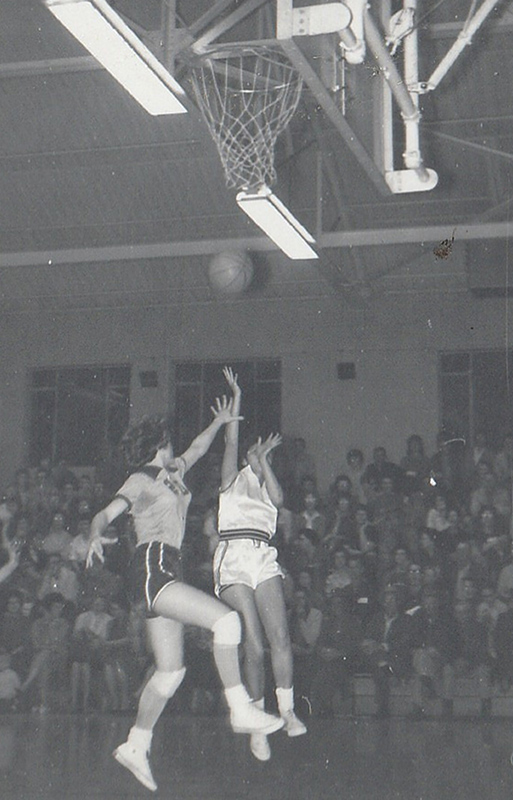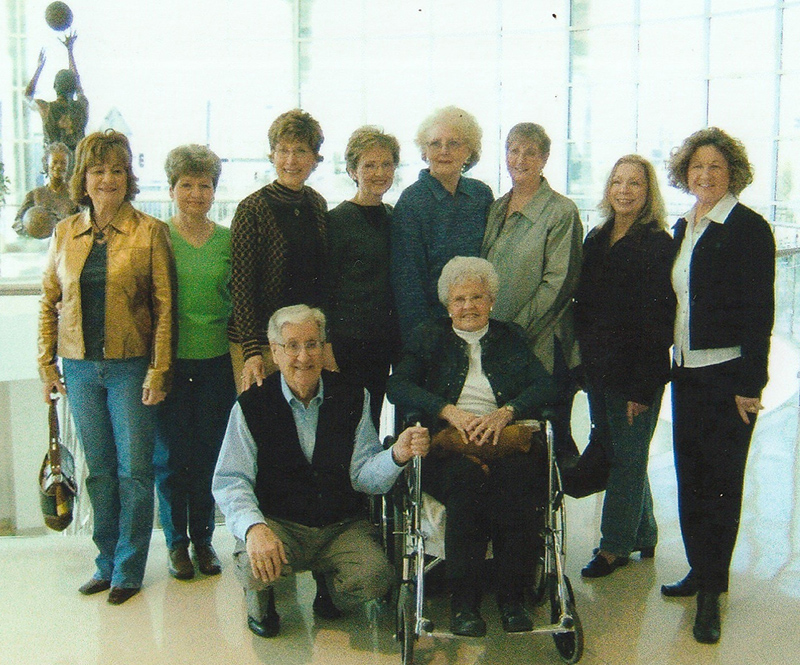Board of Trustees: SMC Trustee’s Hoop Dreams Hit the Big Screen
Jeremy Handel
Staff Writer
 SMC Board Trustee Marilyn Murphy lights up when she talks about basketball. Bonding and playing with her teammates. Traveling on the bus to other towns for games. Seeing the pride and support from her small, hometown community. These are the treasured memories that Murphy loves to reflect on, because these are things that are important to a high school athlete.
SMC Board Trustee Marilyn Murphy lights up when she talks about basketball. Bonding and playing with her teammates. Traveling on the bus to other towns for games. Seeing the pride and support from her small, hometown community. These are the treasured memories that Murphy loves to reflect on, because these are things that are important to a high school athlete.
There is a little more to Murphy’s story, though. Her beloved team of friends and teammates played a big role in the rise of girls’ basketball in Oklahoma and even a small part in the fight for equality in women’s sports. A legendary coach and a gritty group of players even put Murphy and her teammates on the big screen.
“I was amazed it was ever produced. I had no idea in the world anything like that would ever happen,” Murphy said about the film “Believe In Me,” which is based on the story of her high school basketball team.
The movie tells the story of a young coach in the 1960s who comes to a school in a small Oklahoma town to coach boys’ basketball. But when he arrives, he’s informed that the school board gave that job to someone else, and he’d actually be coaching girls’ basketball. The story follows the success of his teams and his growth from opposition to coaching girls to his passion for it.

Coach Clay Driscoll, played by “Burn Notice” star Jeffrey Donovan, finds himself in a battle with a conservative school board member who doesn’t believe girls’ basketball deserves the resources of the boys’ team. He also finds himself in a battle with himself over a similar belief. Through the commitment, hard work, and grit of the young ladies he coaches, Driscoll finally sees that the girls are worth his time and becomes their biggest champion for equal support.
In real life, that young coach was Jim Keith, Murphy’s coach at Sayre High School in western Oklahoma. The movie is based on the book “Brief Garland: Ponytails, Basketball, and Nothing But Net” by Harold Keith, the coach’s uncle. While the movie takes some creative license with the story, Murphy said the underlying themes ring true. The girls’ team in the early 1960s wasn’t taken as seriously as the boys’, and the lack of resources and restrictions on practice made it difficult to succeed, but to her and her teammates, that’s just how it was, and they just wanted to play basketball.
“It really didn’t register with us,” she said of the inequities. “All we cared about was playing, winning, and being together as friends.”
Murphy said looking back now, it was a bigger challenge for her team. They didn’t get new uniforms or warm-ups as often as the boys’ team. The girls and their mothers often had to repair them – sometimes during half time of their games. The girls were also restricted to practicing only during lunch hour, limiting the time they had to perfect their game.
“We wanted to be treated more like the boys,” Murphy said. She said the girls, like in the movie, sat down with Keith to implement rules for the team during the season like a curfew and not drinking soda. Their commitment even led the team to getting jobs picking cotton to earn enough money to purchase their own new uniforms.
Keith was impressed with their commitment and desire to be taken seriously. He decided to take up their cause as well, fighting for better equipment, resources, and support. His cause was helped along by Murphy and her teammates, especially budding star Jerry Ann Robertson (now Bibb). When she and her classmates moved up from junior high in 1961, their talent showed immediately, and they took Sayre to No. 1 in the state the next year.
While the team didn’t win the state championship, as they did in the movie, they earned the respect and support of the school, the community, and their coach. Following the success of that team, Keith’s view on coaching girls changed, and he went on to have a legendary career in Oklahoma girls’ basketball. His advocacy for equality in sports provided some early support and inspiration for the movement that led to the passing of Title IX, which requires equality in sports in high school and college.

Murphy said that she is proud to have been a part of that effort, but what she really wants to talk about is playing basketball. Murphy was a defensive guard on those early teams and takes pride in her “aggressive” style of play in defending the other team’s scorers. In the 1960s, Oklahoma girls played a six-person style of basketball where each team had three offensive players and three defensive players on each side of the court. It was essentially a three-on-three game as neither set of players could cross the half-court line.
She admits that Keith wasn’t her favorite coach but that she did learn a lot from him about basketball and a few things about life.
“He taught us that in everything we do, somebody’s watching us,” she said. “I was at an alumni event years ago and had a former classmate come up to me and told me how much he admired watching me play. So, keep in mind that in everything you do in life, somebody’s watching you and you’re influencing someone.”
Murphy went on to attend the University of Oklahoma and married her high school boyfriend Lomax. When her husband accepted an engineering job in Florida, she finished her degree at the University of West Florida as part of the college’s inaugural class of 1968.
The couple relocated to South Carolina where Murphy’s leadership with the United Methodist Conference and beyond led to her eventual nomination as a trustee for SMC. During that time, she said a highlight was attending Schools of Christian Mission at SMC, where she discovered and read SMC founder Dr. David Camak’s book, “Human Gold from Southern Hills.” She was immediately in awe of his concept of giving students hands-on experience by working and serving the community while going to school. Ever since, she’s been very passionate about representing the College and supporting the students who attend.
When the movie was released in 2006, Murphy joined some of her former teammates and Coach Keith at the premier in Knoxville, Tennessee. She said it was a great experience seeing the movie for the first time, interacting with some of the stars of the film, and touring the Women’s Basketball Hall of Fame. And, in true Marilyn fashion, she said the best part was reuniting with her teammates.
Murphy’s basketball days may be in the past, but her team’s basketball legacy will live on forever.
